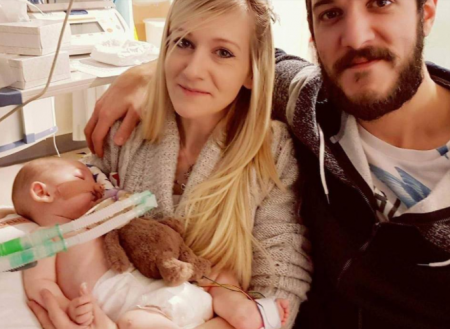Charlie Gard, the terminally ill baby at the centre of a high-profile court battle, has died.

The infant passed away in a hospice just days before his first birthday under the terms of an end-of-life plan agreed by a High Court judge.
The news was confirmed on Friday evening and Charlie's mother, Connie Yates, said simply: "Our beautiful little boy has gone, we are so proud of you Charlie."
An end-of-life plan for baby Charlie, who has a rare genetic disease, was approved on Thursday by High Court judge Nicholas Francis.
He said the 11-month-old would be kept at Great Ormond Street Hospital (GOSH) on life support, before being moved to the hospice where the artificial ventilator would be switched off and Charlie would “inevitably” die.
Mr Gard and Ms Yates this week ended their five-month legal fight to take their son to the US for experimental treatment after new tests showed he had suffered irreversible muscular damage.
Charlie, born on 4 August 2016, inherited the faulty RRM2B gene that affects the cells responsible for energy production and respiration, leaving him unable to move or breathe unaided.

The infant passed away in a hospice just days before his first birthday under the terms of an end-of-life plan agreed by a High Court judge.
The news was confirmed on Friday evening and Charlie's mother, Connie Yates, said simply: "Our beautiful little boy has gone, we are so proud of you Charlie."
An end-of-life plan for baby Charlie, who has a rare genetic disease, was approved on Thursday by High Court judge Nicholas Francis.
He said the 11-month-old would be kept at Great Ormond Street Hospital (GOSH) on life support, before being moved to the hospice where the artificial ventilator would be switched off and Charlie would “inevitably” die.
Mr Gard and Ms Yates this week ended their five-month legal fight to take their son to the US for experimental treatment after new tests showed he had suffered irreversible muscular damage.
Charlie, born on 4 August 2016, inherited the faulty RRM2B gene that affects the cells responsible for energy production and respiration, leaving him unable to move or breathe unaided.

